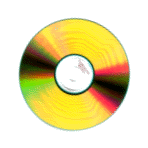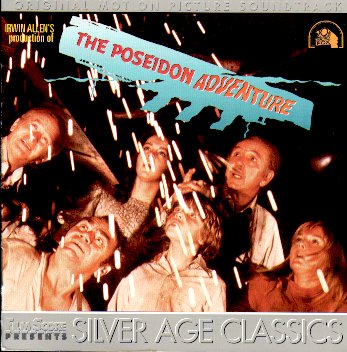Music Webmaster Len Mullenger |
||
Music Webmaster Len Mullenger |
||
 |
FILM MUSIC RECORDINGS REVIEWS |
 |
October 1998
| Discs on these pages are offered for sale. There is also a page of search engines from a selection of on-line retailers here. Please support this web-site |
John WILLIAMS
The Poseidon Adventure (1972); The Paper Chase
(1973); Conrack (1974)  OSTs OSTs
 FILM SCORE MONTHLY Special Edition FSM Vol
1 No 2 [75:49] FILM SCORE MONTHLY Special Edition FSM Vol
1 No 2 [75:49] |
|
|

Lukas Kendall and his colleagues on Film Score Monthly are to be congratulated
on this , the second of their special CDs. This generously filled album contains
three of John Williams' early scores and proves that he was writing just
as brilliantly in pre-Jaws days back in the early 1970s.
The disc opens with a suite from the film The Paper Chase which shot John Houseman to fame as the plummy-voiced, imperious Professor Kingsfield, the autocratic Harvard contracts law tutor. Cleverly, Williams does not use any music whenever Kingsfield appears because, through student Hart's eyes, Kingsfield appears too remote, too enigmatic; so, instead Williams uses a muted distant fanfare to portray Kingsfield, offstage, whenever he is referred to or obtrudes into the students' thoughts. Williams uses much classical-style music in keeping with the dignified, learned atmosphere of Harvard. We hear, for instance, in the cue "Hart in a Hurry", a pastiche of a Baroque harpsichord concerto filtered through the Italian comic opera style of Mozart and Rossini. In one of the most engaging cues on the CD, "To the Hotel", Williams underscores the scene showing the stress of cramming for exams with frantic string figures, and correct classical figures juxtapositioned with cheeky electric guitar chords and typewriter-like percussion. The best remembered music is the beautiful love theme which is quoted throughout the score but topping this is the remarkable cue "The Passing of Wisdom" in which Williams builds a magical atmosphere closely resembling his lovely "Fortress of Solitude" from Superman, to represent the marvel of the passing of wisdom on from one generation to the next. The suite includes music not employed in the film. Three of the tracks are in stereo.
Conrack starred Jon Voight who tries to bring modern education to the backwards inhabitants of a South Carolina island. Williams responded with a warm, good-natured score that reflected the film's playful, bucolic tone perfectly. His music echoes the folksy Americana of The Cowboys and anticipates the music he would employ for the rural drama, The River.
The Poseidon Adventure was one of two major Irwin Allen disaster-movie box-office successes (the other was The Towering Inferno, again scored by John Williams). The Poseidon is a luxury liner that's capsized by a 90 ft tidal wave which turns the ship upside down (accordingly, the remarkable inverted sets was one of the major contributing factors to the success of the movie). Much of the screenplay concerns the efforts of a group of people including Gene Hackman, Ernest Borgnine and Shelley Winters to reach the stern (which is riding clear of the water), and thence to safety. The film also starred Leslie Nielsen as the hapless captain. Williams's main title music commences with low metallic rumblings in the orchestra followed by an imposing theme on horns over a heavy regular ostinato figure illustrating the big powerful ship riding majestically over the undulations of the sea (It is interesting to compare this opening music with Horner's Titanic score.) Within this opening music there is also a parallel rhythmic unsteadiness which forecasts disaster. This opening music returns in the closing "End Title" (with the main theme strongly developed so that it reminded me very much of Kurt Atterberg's "West Coast Pictures" 3rd Symphony). This time the music, growing in ascending figures, becomes more aspirational, more positive, as the survivors find the propeller shaft and thence their salvation as those outside on the hull break through the superstructure to rescue them. It is a thrilling musical moment. On the way Williams's creates music that reflects the claustrophobia and disorientation of the passengers as the surging waters close in on them while they seek their way through the maze of the ship's passages. "The Search for the Engine Room", for instance, presents slithery string figures to suggest both the movement of water and the remembered beat of the engines; low percussion, including percussive piano, indicating the uncertainty of the questing passengers. The arrival of "The Big Wave" itself is marked by a crescendo followed, for much of this evocative cue, by eerie, bleak, dead-sounding, atonally-tinged music that seems to hang suspended over the aftermath in which cabins and state rooms are submerged when the sea rushes in to claim the vessel. Frantic, dramatic music changes the tempo of "The Barber Shop" as one of the passengers attempts to free himself while trapped under water. The orchestration, using harps, muted brass and high sustained string chords or regular bass strings and surging, watery rhythms etc is most impressive. Music not included in the film is included and one of the twelve tracks is in stereo.
The documentation is first class with intelligent, informative notes and many pictures
Ian Lace
Note: This CD is a limited edition available from Film Score Monthly price: $19.95 plus $3 shipping U.S./Canada (or $5 overseas) payable to Film Score Monthly, 5455 Wilshire Blvd Suite 1500, Los Angeles CA 90036, USA.
Film Score Monthly's web site may be visited at: http://www.filmscoremonthly.com/retroorder.html
Return to October Film Music Reviews